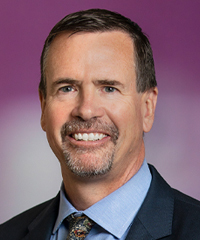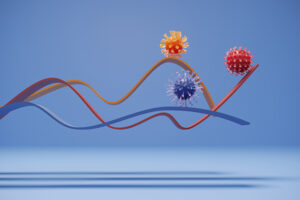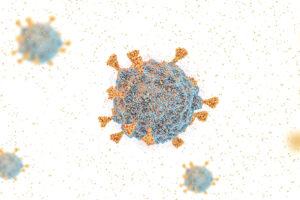Infectious Diseases
Influenza
Allaying Parental Concerns About Chemicals in Vaccines
Overview
An on-demand session titled “Addressing Parents’ Concerns About Chemicals in Products and Vaccines” was presented by Aparna Bole, MD, FAAP, at the 2020 AAP Virtual National Conference & Exhibition. Dr Bole reviewed several discussion points that may be helpful in responding to vaccine hesitancy from parents who are concerned about toxic chemicals.
Following the presentation, our featured expert, Sean O’Leary, MD, MPH, was interviewed by Conference Reporter Editor-in-Chief Tom Iarocci, MD. Dr O’Leary’s clinical perspectives on this session are presented here.
Sean O'Leary, MD, MPH
|
|
“I find it helpful to emphasize that many of the chemical exposures that children have in their environment are from unregulated sources, whereas vaccines are very highly regulated and are studied very carefully to ensure their safety.”
The issue of chemicals in vaccines is an important one because most of us who have worked in primary care do not receive extensive training in vaccine safety, particularly with respect to vaccine constituents (eg, stabilizers, preservatives). Good information, misinformation, and disinformation about vaccines and their ingredients are all freely available online today, and it is important for clinicians to understand what those ingredients are and to be able to respond to parents’ concerns about them.
An important starting point in having these conversations is to understand where the parent falls on the spectrum of vaccine acceptance. Parents who are merely hesitant about vaccines are likely to be receptive to information. For parents who are very anti-vaccine, I would not go into great detail initially, as these beliefs are often strongly held and are rarely overcome in a single encounter. In these cases, I would start by simply communicating a strong message on why vaccination is important and then also mention that we will continue to revisit the topic of vaccination during future visits.
As noted by Dr Bole in her presentation, for families who are already concerned about household and environmental chemical exposures (eg, they only buy organic products or they avoid microwaving in plastic containers), it helps to recognize that they are doing everything they can to make sure that their child is as healthy as possible. Acknowledging that there are, indeed, numerous concerns with chemicals in the environment, I find it helpful to emphasize that many of the chemical exposures that children have in their environment are from unregulated sources, whereas vaccines are very highly regulated and are studied very carefully to ensure their safety. Vaccines are held to a much higher safety standard than other medicines because we are giving them to a healthy population. Another potentially helpful point to emphasize is that the quantities of ingredients (eg, aluminum, gelatin) in vaccines are minuscule and entirely safe. Further, the protection offered by vaccines actually makes children safer.
The biggest concerns are those related to thimerosal, which contains ethyl mercury and aluminum adjuvants. The concern with mercury in vaccines causing adverse events such as autism has been disproven in multiple studies. Also, thimerosal has essentially been out of routine childhood vaccines for many years now, as it is a preservative used in multidose vials, and routine childhood vaccines in the United States are all now supplied as single doses. When aluminum comes up, I point out that aluminum is everywhere, including in the air that we breathe, the water that we drink, and the food that we eat. Adults ingest more aluminum in a typical day than infants would get in the entire vaccine schedule, and our bodies can handle aluminum just fine. Whether aluminum is ingested through drinking or eating, or through a vaccine, it is handled very efficiently, with the vast majority excreted through the kidneys.
So, in summary, I think that it is very helpful to acknowledge that these concerns stem from the parents’ desire to do everything they can to ensure that their children are safe and healthy, and then to point to the protection that vaccination offers to their children.
References
American Academy of Pediatrics Council on Environmental Health. Etzel RA, ed. Pediatric Environmental Health. 4th ed. American Academy of Pediatrics; 2019.
Bole A. Addressing parents’ concerns about chemicals in products and vaccines. On-demand session presented at: 2020 American Academy of Pediatrics Virtual National Conference & Exhibition; October 2-5, 2020.
Brunson EK. How parents make decisions about their children’s vaccinations. Vaccine. 2013;31(46):5466-5470. doi:10.1016/j.vaccine.2013.08.104
Centers for Disease Control and Prevention. What’s in vaccines? Accessed October 18, 2020. www.cdc.gov/vaccines/vac-gen/additives.htm
Dubé E, Vivion M, MacDonald NE. Vaccine hesitancy, vaccine refusal and the anti-vaccine movement: influence, impact and implications. Exp Rev Vaccines. 2015;14(1):99-117. doi:10.1586/14760584.2015.964212
Eldred BE, Dean AJ, McGuire TM, Nash AL. Vaccine components and constituents: responding to consumer concerns. Med J Aust. 2006;184(4):170-175.
Mitkus RJ, King DB, Hess MA, Forshee RA, Walderhaug MO. Updated aluminum pharmacokinetics following infant exposures through diet and vaccination. Vaccine. 2011;29(51):9538-9543. doi:10.1016/j.vaccine.2011.09.124
Shen SC, Dubey V. Addressing vaccine hesitancy: clinical guidance for primary care physicians working with parents. Can Fam Physician. 2019;65(3):175-181.
This information is brought to you by Engage Health Media and is not sponsored by, nor a part of, the American Academy of Pediatrics.











